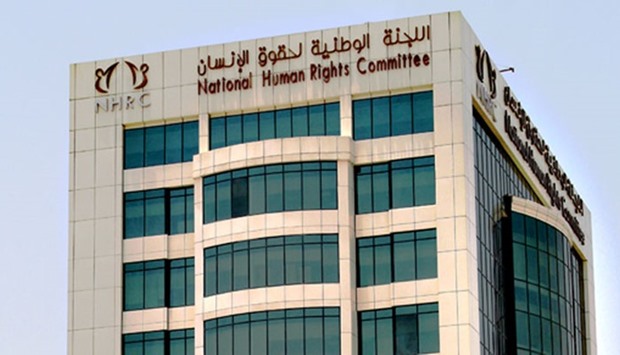In a statement issued on Monday, the NHRC said the letters relied on the cases it monitored, starting with violations against Qatar's Umra pilgrims during Ramadan to challenges faced by Qatari entities to finalise procedures for Haj pilgrims.
The NHRC stressed in the letters that the Saudi authorities imposed a number of restrictions that made it difficult for Qatar's pilgrims to reach the holy sites through only two airports, besides the lack of a clear mechanism for currency exchange and not co-operating with the entities in Qatar to finalise Haj procedures.
The committee said that the complaints it submitted to international platforms on the repercussions of the siege on human rights and humanitarian conditions of GCC citizens, related to its powers in accordance with the Paris Principles. It added that the aim of the complaints is to seek lifting of restrictions placed on Qatar's pilgrims rather than internationalisation of the holy site issue as claimed by Saudi officials.
The NHRC said there is a major legal distinction between internationalisation of human rights violations due to the siege and internationalisation of the issue of the holy sites, which was never mentioned in any NHRC letter or statement.
The committee denounced the outcomes of the recent meeting of the foreign ministers of siege countries in Manama, particularly those related to the right to carrying out religious practices, saying that while Gulf people and international rights groups were looking forward to easing the suffering of the siege victims, the world was astonished by the insistence of the siege countries to continue violations and threaten more.
Foreign ministers of siege countries tried to evade their moral, legal and religious responsibilities towards the victims of the siege, including pilgrims, by coming up with excuses and relying on futile legal interpretations to justify the violations.
In addition, the NHRC said the Saudi Ministry of Haj and Umra declined to communicate with the Ministry of Endowments and Islamic Affairs in Qatar to ensure the safety of pilgrims and facilitate the Haj pilgrimage.
The NHRC added that the Saudi ministry refrained from providing any guarantees for the safety of Qatar's pilgrims as concerns grow for their security in light of the incitement and hate speech by Saudi government media and the rest of the siege countries against the citizens and residents of Qatar, who have lost faith in performing Haj safely.
The committee said it monitors all the incitement speech, which is circulated as part of the hurdles placed by the Saudi authorities against Qatar's pilgrims, in blatant disregard of the calls of human rights organisations not to "politicise" the Haj, and to provide assurances and facilitation for Qatar's pilgrims.
The NHRC also pointed to Saudi official media's accusation of Qatar that it targeted Makkah, saying that such acts increase the fears of pilgrims about potential threats and harassment they might encounter.
The committee stressed that it intends to continue to present violations of the right to practise religious rituals at all international and regional rights platforms, calling in this regard on Saudi authorities to remove all obstacles and to facilitate the performance of Haj for Qatar's citizens and residents.

NHRC said the letters relied on the cases it monitored, starting with violations against Qatar's Umra pilgrims during Ramadan to challenges faced by Qatari entities to finalise procedures for Haj pilgrims
The National Human Rights Committee (NHRC) said it has sent a letter to the UN special rapporteur about the restrictions placed by Saudi authorities on citizens and residents of Qatar who want to perform Haj, adding that it sent similar letters to the Office of the UN High Commissioner for Human Rights (OHCHR) and the Arab League in order to explain the violations related to the right to perform religious rituals.
